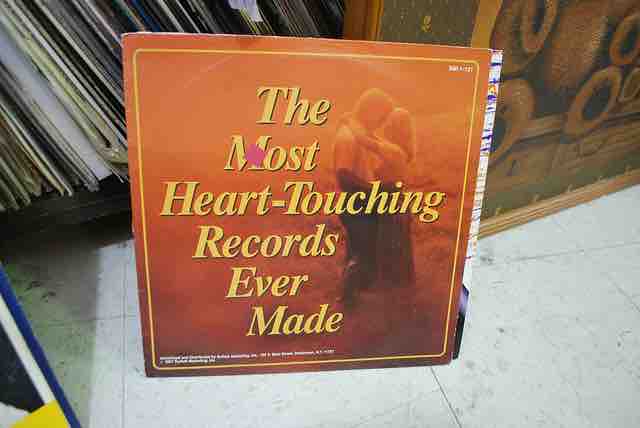
Hyberbole
Hyperbole is a form of exaggeration. Do you really think these are THE most touching records EVER made?
Hyperbole: What Is It?
Hyperbole comes from the Greek word meaning exaggeration and that is exactly what it is. Often, you can identify hyperbolic claims by certain trigger words such as "most," "best," or "worst. " But not all hyperbole is that clear cut. The question you must ask upon hearing a hyperbolic statement is whether or not it's actually a true statement. Hyperbole would have you believe so, and that's what makes it an effective and strategic stylistic choice.
Why Use It?
While you want to avoid generalizations in your speech as much as possible, there are advantages to using hyperbole. They can be used like any other descriptive form of language to help paint a more vivid picture for your audience. Hyperbole also serves as a form of persuasion, to really make your case to an audience. The use of exaggeration or overstatement can make your speech that much more persuasive.
How to Use Hyperbole
Like any stylistic choice, be strategic. You don't want your speech to consist solely of hyperbole as your audience will quickly begin to see that your argument has no basis. You can also use it to be more relatable to your audience or to simply communicate your point with a more vivid, engaging style. If you were speaking about a world leader, you might say, "they have the weight of the world on their shoulders" instead of "world leaders have a lot to deal with. " We know that a world leader does not, in fact carry a weight of 6.6 sextillion tons of the Earth's physical weight. But using that phrase communicates just how difficult it is to carry the burdens of global leadership.